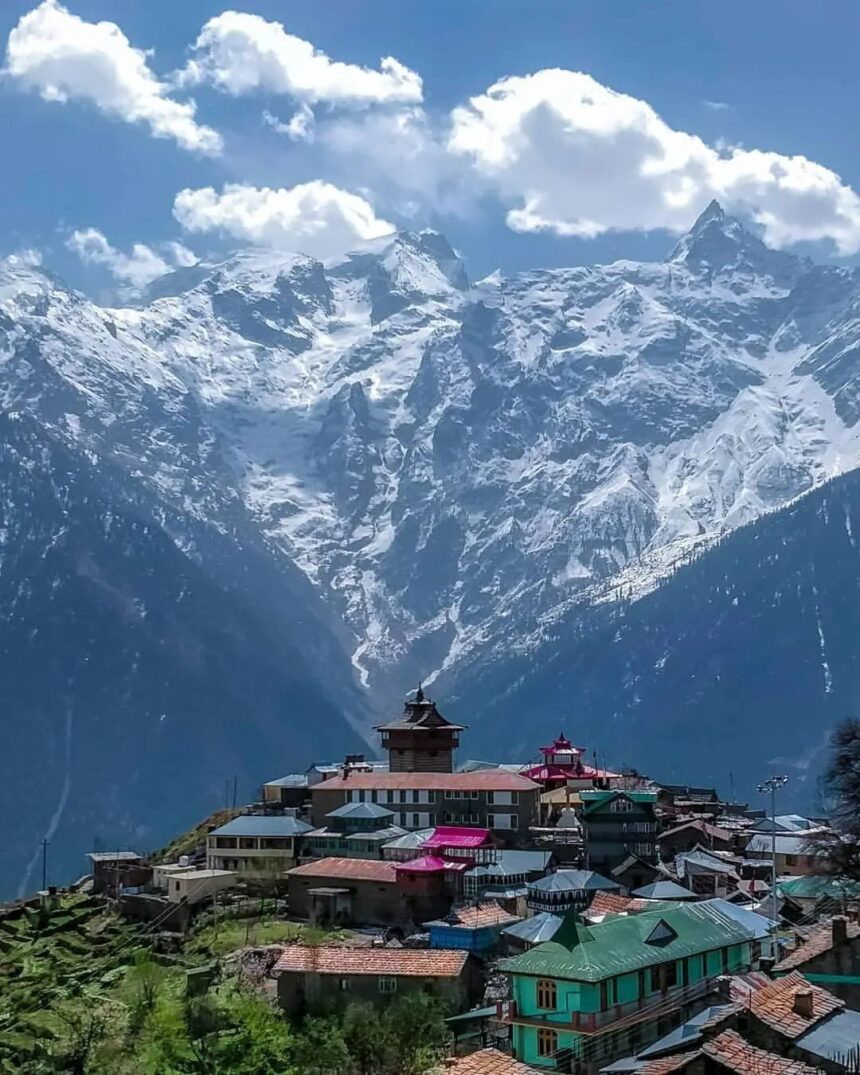✨ Introduction
Nestled in the lap of the Himalayas, Kasol—often called the “Mini Israel of India”—is one of the most mesmerizing destinations for travelers looking for peace, adventure, and spirituality without breaking the bank. Located in Himachal Pradesh’s Parvati Valley, Kasol is not just a place; it’s an experience. From its snow-capped mountains to bubbling rivers, ancient legends, cheap vacation spots, and vibrant cultural diversity, Kasol is a heaven for backpackers, solo travelers, and budget explorers.
This article takes you on a detailed journey through Kasol’s history, facts, FAQs, cheap vacation ideas, significance, timeline, and societal impact, making it an essential guide for anyone planning a trip.
🏞️ History of Kasol
Ancient Roots: The Parvati Valley, where Kasol is located, has been historically linked with sages and spiritual seekers who came here to meditate in peace. Local folklore even connects the valley with Lord Shiva, who is believed to have meditated here.
Israeli Influence: In the late 20th century, Kasol gained popularity among Israeli travelers after the Indo-Israel relations improved. This gave Kasol its identity as Mini Israel, with Hebrew cafés, shops, and cultural influences that still remain strong today.
Modern Tourism: By the early 2000s, Kasol became a hub for backpackers, trekkers, and cheap vacation seekers, owing to its affordability and unmatched beauty.
📌 Important Facts about Kasol
Kasol is located 37 km from Bhuntar Airport, making it accessible for budget travelers.
It sits on the banks of the Parvati River, providing scenic camping and riverside activities.
The altitude is 1,580 meters (5,180 ft), offering pleasant weather almost year-round.
Kasol is the base for many famous treks like Kheerganga, Tosh, and Malana.
Despite being small, Kasol is a global backpacking hub with visitors from across Europe, Israel, and Asia.
Israeli food, music, and Hebrew signage dominate the cafés and streets.
It is a budget-friendly spot, with hostels and guesthouses starting as low as ₹300–500 per night.
🧭 Timeline of Kasol’s Growth
Pre-1900s: A quiet Himalayan hamlet with agricultural roots and spiritual presence.
1960s–1980s: Hippie culture and foreign travelers began visiting for meditation and escape.
1990s: Kasol started gaining popularity among Israeli tourists.
2000s: Rise of cafés, guesthouses, trekking culture, and budget tourism.
2010s onwards: Recognized as one of the top cheap vacation destinations in India.
💸 Cheap Vacation Ideas in Kasol
Kasol is perfect for travelers who want to explore without spending much. Here are some affordable yet incredible experiences:
Stay in Backpacker Hostels or Guesthouses – Budget stays start from ₹300 per night.
Street Food & Israeli Cafés – Enjoy shakshuka, falafel, or maggi by the riverside at pocket-friendly prices.
Trek to Kheerganga – A once-in-a-lifetime experience costing less than ₹500 if done solo.
Explore Chalal Village – A short scenic walk with no entry fee.
Camping by the Parvati River – Budget camps available from ₹600 onwards.
Visit Manikaran Sahib Gurudwara – Free food (langar) and hot water springs.
Local Shopping – Pick up handicrafts and souvenirs at cheap rates.
Photography & Nature Walks – Free yet soul-enriching activities.
Attend Music Jams – Many cafés host free music nights.
Relax & Meditate – The best and cheapest way to experience Kasol’s spiritual energy.
🌍 Significance of Kasol
Spiritual Significance: With legends tied to Lord Shiva, Kasol is seen as a place of spiritual awakening and calmness.
Cultural Importance: It bridges Indian traditions with Israeli culture, creating a unique global village atmosphere.
Economic Impact: Tourism in Kasol sustains local businesses, guides, and hospitality services, boosting rural livelihoods.
Environmental Significance: The Parvati Valley acts as a green lung, maintaining biodiversity and Himalayan ecology.
Youth & Lifestyle Impact: Kasol is considered a “rite of passage” for young Indians who want to backpack, explore, and connect with nature on a budget.
🎉 Wishing and Observance
Travelers often visit Kasol seeking peace, relaxation, or spiritual blessings. People wish each other “Shalom” (Hebrew for peace), reflecting the Israeli presence, or greet locals with warm Himachali hospitality. Many also observe treks and meditation retreats here as part of their inner journey.
If you plan to visit, wish yourself:
👉 “May my journey to Kasol bring me peace, adventure, and memories for life.”
🙌 Importance in Daily Life & Society
Kasol might be a small village, but its role is larger than life:
For locals: It provides livelihood through tourism, food, and homestays.
For travelers: It’s an escape from chaotic urban lives, offering cheap but transformative vacations.
For society: It shows how sustainable tourism can uplift remote areas.
For youth: Kasol inspires minimalist living—teaching that happiness lies not in luxury, but in experiences.
❓ FAQs about Kasol
Q1. Is Kasol safe for solo travelers?
Yes, Kasol is safe for solo and female travelers, provided you follow basic precautions.
Q2. What is the best time to visit Kasol?
March to June (pleasant weather) and October to February (snow experience).
Q3. How much does a Kasol trip cost?
A budget trip can be done in ₹3,000–₹5,000 for 3–4 days, including stay, food, and travel.
Q4. Why is Kasol called Mini Israel?
Because of the large Israeli tourist community, Israeli cafés, and Hebrew culture.
Q5. What treks can be done from Kasol?
Kheerganga, Tosh, Chalal, Malana, and Rasol are popular treks.
📝 Important Points to Remember
Respect local culture and environment.
Avoid plastic use to preserve nature.
Carry cash; ATMs are limited.
Book stays in advance during peak season.
Try authentic Himachali and Israeli dishes.
✅ Conclusion – Why Kasol Matters in Our Lives
Kasol is not just a cheap vacation idea—it’s a life-changing destination. Its history, culture, affordability, and spiritual charm make it a perfect escape for modern souls. Whether you’re trekking through lush forests, eating shakshuka in a riverside café, or sitting silently by the Parvati River, Kasol teaches us one powerful truth: happiness lies in simplicity and connection with nature.
In daily life, Kasol inspires us to live minimally, value experiences over materialism, and embrace cultural diversity. For society, it shows how small towns can thrive through sustainable tourism and global friendships.
So, if you’re seeking a budget-friendly trip that is rich in history, spirituality, and adventure, Kasol is waiting for you with open arms.
🌿 Final Wish for You:
“May your journey to Kasol be full of peace, adventure, friendships, and unforgettable memories.”








